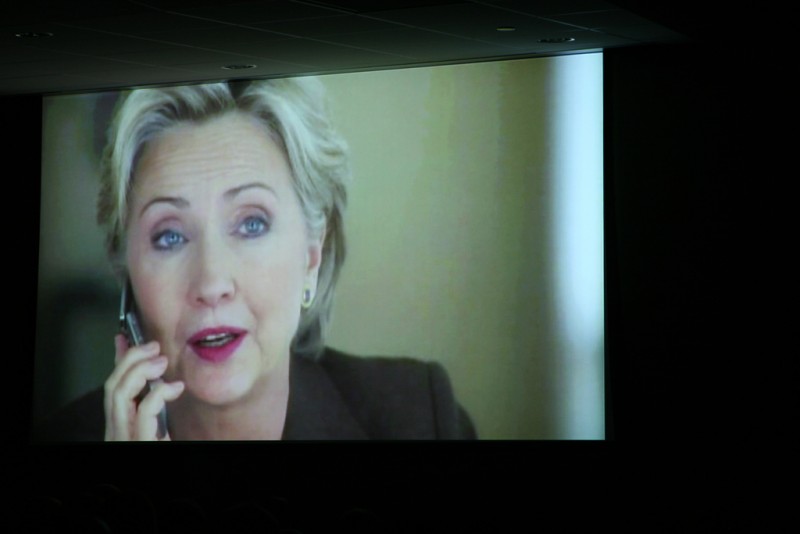This article is the first installment of a column that will analyze the American news industry, examining the role of the press and of the public with respect to journalism. It will delve into individual and organizational bias, ratings concerns, the impact of the Internet and new technologies, responsible reporting, and news consumption. At the same time, the article will attempt to evaluate what news producers and consumers must do to enable journalism to function properly. The most recent presidential election, as well as the years to come, will feature prominently. Journalism is the foundation of an informed democracy, the bedrock that enables voters to cast their ballots in their best interest. Where journalism succeeds, as well as where it fails, will be the key focus in the articles to come.
Bias is a symptom of an imperfect news industry trying to cover a far from perfect world. This can mean exhibiting loyalty to specific parties or factions, partiality for a specific public figure, or favoring one viewpoint on an issue over others without proper justification. These predilections will inevitably be reflected in the work that journalists and editors produce. The resulting problem is not an insufficiency of impartiality; it is that media groups who reject the notion that they produce slanted content are misleading the public about their organizational slant and the slants of their individual journalists. While these organizations should try to avoid excessive amounts of bias, they must also acknowledge that it will invariably be present in the majority of their work. Such an acknowledgement would improve journalistic transparency and credibility, something that is badly needed at a time when a majority of voters across the political spectrum profess distrust in the overall trustworthiness of mainstream media sources.
News organizations that claim to be free of bias usually do so in an effort to lend credibility to their coverage and, in some cases, delegitimize the coverage of others. The most notable instance of this is Fox News, which regularly criticizes the “mainstream media’s” news coverage, lambasting other networks and newspapers for perceived bias and irresponsible reporting. There is an obvious motive for this approach; it is an attempt to appeal to viewers with corresponding biases. This strategy, especially in recent months, has worked well for news networks, increasing their ratings as they played to certain political demographics. However, what works for ratings often doesn’t work in terms of responsible journalistic practice, and this instance is no exception.
It is no coincidence that the media groups with the largest savior complexes, those that claim to occupy the lone spot in the eye of the swirling cyclone of spin and slant, are often the ones with the most obvious biases. This is the news business’ equivalent to keeping a folder on your computer labeled “absolutely not porn.” The assumption is that people will buy into the charade as long as it is concealed in the most obvious way imaginable. They are by no means fooling anyone; the vast majority of viewers have some awareness of each organization’s slant.
News organizations that unequivocally deny the influence of bias in their work are both incorrect and misguided. They all exhibit bias and should not consider it an embarrassment or a weakness. Even a news source consisting entirely of centrist journalists and devoid of any corporate sponsors or special interests cannot ensure true impartiality. It is human nature to form opinions about our world and the issues we face. We take in information and analysis, process it through the filter of our personal beliefs, and produce our opinions. This idea forms the basis for society’s need for accurate journalism. Professional journalists, in spite of what President Trump would have us believe, are human beings, and thus subject to human nature. They aren’t doing themselves or their readers any favors by pretending that their biases don’t exist.
Complete denial or evasion of bias can also lead to weak, ineffective coverage. A paper, station, or network wary of being called out on their perceived bias will often go out of its way to show deference to all sides regardless of undeniable culpability, objective wrongdoing, or faulty reasoning. This was blatantly apparent with much of the coverage of Donald Trump’s presidential campaign; established, respected news organizations took many of his preposterous claims and obvious lies way too seriously. Many of these networks balked at the idea of ignoring or swiftly dismissing these statements for fear of being labeled as prejudiced against Trump. A news organization that exercises this sort of excessive caution when reporting on political scandals and charlatan candidates is abdicating one of its fundamental responsibilities to the public.
Journalists, in many ways, are the watchdogs of society, tasked with holding the powerful accountable, keeping the public informed, and putting important information into the appropriate context. In order to effectively do their jobs, they need to assume a kind of protective responsibility toward their readers and viewers. They cannot endlessly agonize over what a company, political organization, individual, or other media group will say about them if truthful, diligent reporting gives off the appearance of slant. Many stories force fair-minded journalists to take a position; this is often necessary to effectively convey and analyze information and is not an inherent evil to be renounced. Impartiality and centrism are not always the same thing, and, for that reason, bias can often be a positive force. This is especially true if news consumers can vary their media intake, absorbing news from respectable outlets on both sides of the political spectrum.
For their part, news consumers must understand the slant of each of their regular media sources, as well as the major media sources they don’t avail themselves of. Once they acknowledge this, they can consume their news with a better understanding of how it is being shaped. The press’ political preferences aren’t nearly as problematic as they are often portrayed, so long as the public is aware of them.
Accepting inherent bias in any type of news coverage is an important step for anyone wanting to become a more educated news consumer. Once a source’s slant is understood, their coverage can be put into a larger perspective. The flaws of opinionated journalism can be taken into account, such as lies, distortions of the truth, omissions of facts or perspectives, which stories are covered, the time and priority given to each, and the quality of the arguments presented on all sides of a contentious topic. Whether it be a classic, well-regarded newspaper like the New York Times, the Washington Post, or the Wall Street Journal, or one of the Internet media startups that seem to be multiplying by the day, bias has a number of ways of manifesting itself in news coverage. Once the consumer understands the universality of bias and the role it plays in the news they take in, they can continue consuming news with a fairer, clearer, more educated perspective.
We, as news consumers, like to think that we have an ironclad grasp on the events of the day. We want to believe that the things we read are indisputably true and free of slant, and that we can quickly jump from reading to understanding to disseminating to debating. But this is not and cannot be the case. Being an informed member of the voting public requires a comprehension of the biases and predetermined stances of both our favorite media sources and the major industry players we ignore or eschew. It takes a good deal of knowledge, experience, and time to be able to competently detect and evaluate bias, but every American should learn to do it. Only then can we consume news with a discerning eye, keeping ourselves informed while keeping our guards up against constructing unnecessary echo chambers for ourselves. Bias will always be a part of our minds, and it seeps from there into the news we read regardless of our best intentions.
It’s time to stop pretending otherwise.



